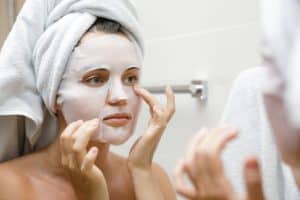“Yes To” Skin Care Company Recalls Facial Mask after Consumers Complain of Burns
 Consumers and users of products expect that the items they buy and use will be safe for their intended purposes. They expect that the makers of the products will run extensive tests to ensure that buyers won’t be hurt. When products are defective and the defects cause injuries, the victims have the right to hold the manufacturers liable for the pain and suffering and harm they cause.
Consumers and users of products expect that the items they buy and use will be safe for their intended purposes. They expect that the makers of the products will run extensive tests to ensure that buyers won’t be hurt. When products are defective and the defects cause injuries, the victims have the right to hold the manufacturers liable for the pain and suffering and harm they cause.
The Today show reported on January 8, 2020, that an 11-year old girl had applied a facial mask made by the company “Yes To” before getting ready for school. The facial mask model was a Grapefruit Vitamin C Glow-Boosting Unicorn Paper Mask. After just a few minutes, the girl’s skin was burning. When she pulled it off, her face was bright red and had an outline of the mask.
It turns out that “Yes To” had recalled the mask on January 3rd, though neither the girl nor her mother was aware of the recall, because other users of the product had also complained about the facemask. Complaints included a mother who said her stepdaughter’s face was “face “welted with red, swollen, itchy, raised abrasions.” Another user said her face “felt like it was burning and stinging and at this point she was crying.”
What you should know about how FDA views cosmetics
Generally, cosmetic products are regulated by the Federal Drug Administration (FDA), but that doesn’t mean they are approved. Cosmetics must, however, be “safe for consumers when used according to directions on the label, or in the customary or expected way, and they must be properly labeled.” The companies who market cosmetic products, such as skin care products, “have a legal responsibility for the safety and labeling of their products.”
That last line is key. Per FDA’s own website, “The law does not require cosmetic products and ingredients, other than color additives, to have FDA approval before they go on the market,” which means that all safety precautions must be undertaken by cosmetics manufacturers. All FDA can do is ensure that products are branded correctly, and ensure that the packages contain what they say they contain.
In other words, if you buy a product thinking it’s a face mask but it’s really, say, a lubricant, then FDA can get involved. If you buy a face cream that says it contains Vitamin C but it does not, FDA can become involved. What it cannot do is recall a cosmetic, or even ensure its safety before it goes to market.
Why not? Because cosmetics are neither food, nor drugs, nor related medical devices. As such, FDA has no real regulatory control over these dangerous products. Many of these products contain chemicals linked to serious health risks – parabens in cosmetics have been linked to breast cancer, as has Benzophenone, which is found in sunscreen and lip balm – yet FDA can do nothing.
Lawmakers have had enough
All of this may be changing, however, as “Lawmakers are seeking to tighten the regulatory framework for the near-$100 billion cosmetics industry after rising concern over bad reactions to makeup, hair dyes and fragrances, along with the possibility that some of the chemical contents within their products could cause long-term health risks,” CNBC reported. The “Safe Cosmetics and Personal Care Products Act of 2019” was introduced into Congress in September, but so far there has been no movement.
At Larson Law, our North Dakota product liability attorneys have been fighting for injury victims for 40 years. We fight to hold all accountable companies liable for your medical bills, pain and suffering, lost wages, disfigurement, and other damages when products are defective. Our Minot and Bismarck lawyers work with product safety professionals and your medical doctors to help verify your claims. To discuss a product liability claim or any personal injury claim, call us at 701-484-HURT or use our contact form to make an appointment.

Mark Larson is a Certified Civil Trial Specialist and Certified Civil Pre-Trial Specialist focusing on personal injury, car accidents, wrongful death, and oil field claims. Since 1979, Larson Law has served the injured throughout North Dakota. Read more about Mark V. Larson.
